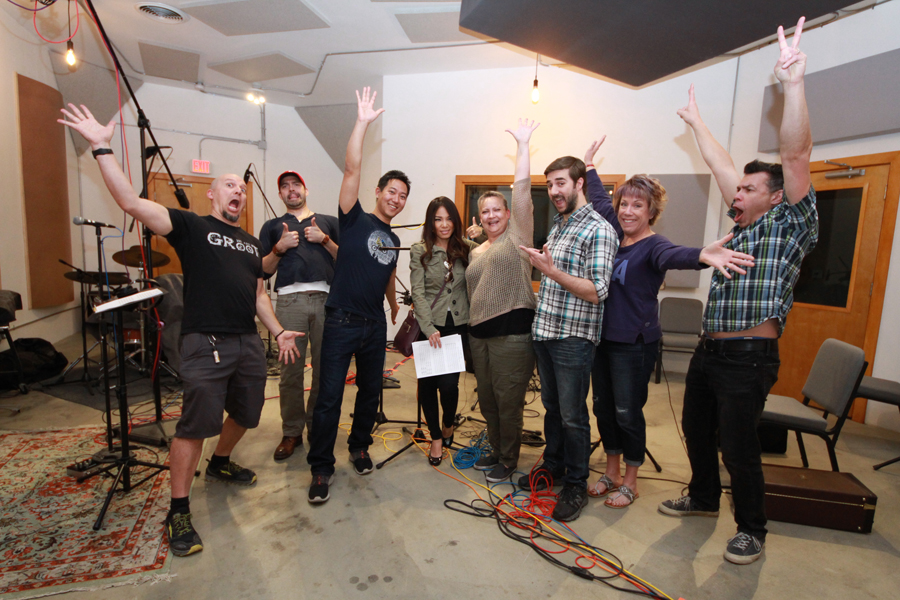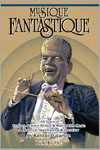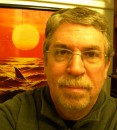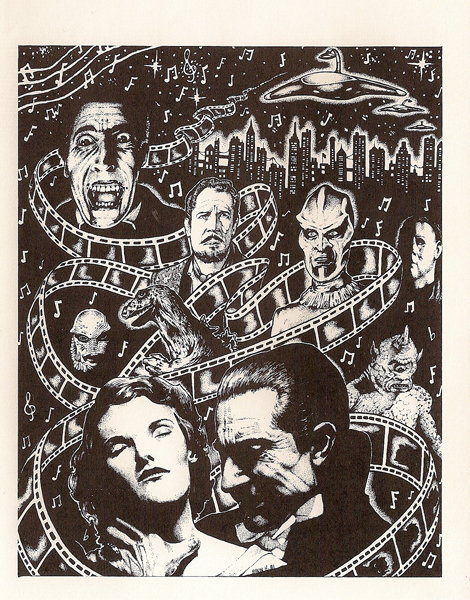George Shaw and The 716th: Scoring a Science Fiction Short
Interview by Randall D. Larson
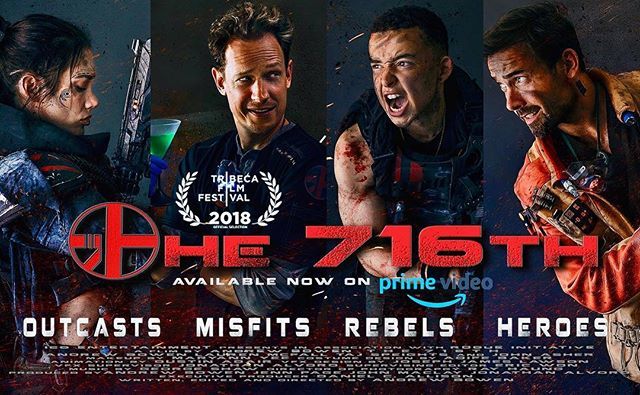
George Shaw has composed an awesome science fiction short called THE 716th which is currently running on Amazon Prime as part of their Film Festival Stars. The short, directed by Andrew Bowen (ALONG THE WAY), is a “wildly fun, sci-fi adventure short film about a pair of unlikely heroes: two insubordinate non-automated combat medics and their admirably brave but poorly conceived, at times comical attempt to rescue a pair of injured infantry soldiers” on the war zone planet below. As Shaw puts it, “It’s M.A.S.H in space meets GUARDIANS OF THE GALAXY!” Amazon Prime members can (and should!) watch the short on US Amazon Prime Video or UK Amazon Prime Video. A soundtrack of Shaw’s score for THE 716th can be ordered through Amazon or through George’s Bandcamp page. And while you’re at his Bandcamp page check out his soundtrack for the third season of the “postmodern metafictional murder-mystery reality web series” that premiered in 2016 on YouTube Premium, ESCAPE FROM REALITY. All three season’s scores are available for digital purchase and they are well worth investigating.
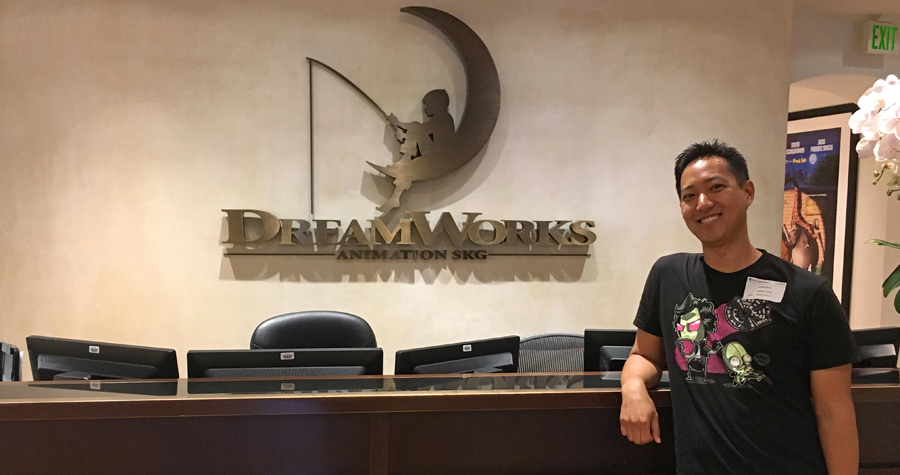
Q: Your score for the s.f. short THE 716TH really captures many different moods in its short running time. How did you go about conceiving of the score and condensing it into such a short running time?
George Shaw: People who know me, or even follow me on social media know what a huge STAR WARS fan I am. And it all started with the incredible themes that John Williams created. So I also start with themes, and for this project I began with the big heroic main fanfare theme in the trumpet. It’s the theme I used the most throughout the film, and it’s my favorite kind of music to write. I think of this as my STAR WARS, as the themes really carry the tradition of character themes used in STAR WARS. I also created a villain theme for the Durakians, who have a very low and menacing minor mode theme.
The rest of the score really focuses on the aggressive brassy sci-Fi action music and the heroic/adventure/fun hijinks in space mood that makes this such a fun film that doesn’t take itself too seriously. It really reminds me of the kinds of movies I love growing up watching in the 90s. I really hope to expand on it, and perhaps if we get enough views on Amazon Prime Video, there could be potential to create more of this story!
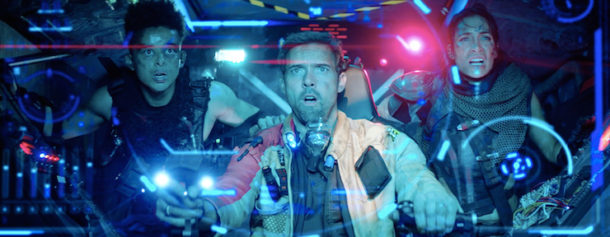
Q: How did you work with the film’s director to establish the mood and provide the right kind of score for his film?
George Shaw: Andrew and I are both huge nerds and love a lot of classic sci-fi like STAR WARS, BACK TO THE FUTURE, and STAR TREK. We knew it needed a big and bold thematic orchestral score, and we’ve worked together on a number of projects before, so we knew this was going to be a great collaboration. From day 1 we knew what kind of score this would be, and it’s the kind of score I’ve always wanted to compose!
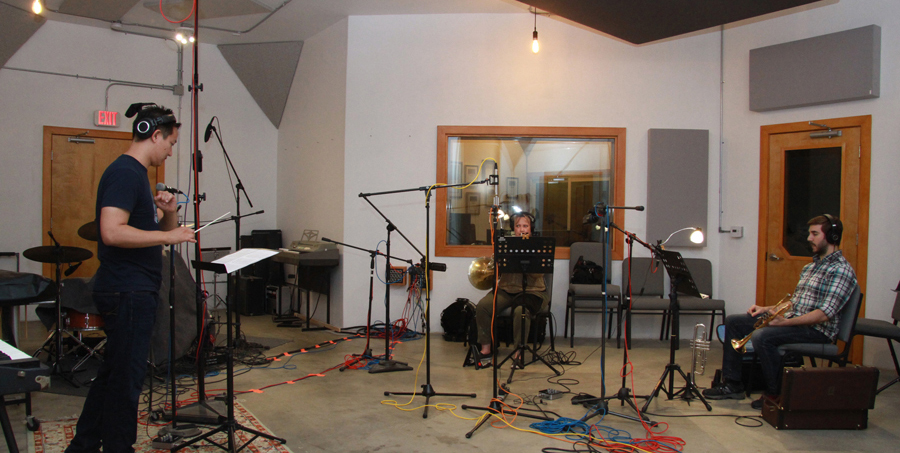
Q: What elements of the short film have you chosen to focus on to anchor your score around?
George Shaw: There were certainly a lot of heroic horn and trumpet fanfares, along with some classic major scales with flattened 6th notes that you often hear in science fiction films. For the more fantastical moments, I used lots of swirling string and wind writing, and the Durakian theme is based around low brass and a low synth pad.
Trailer for THE 716TH
Q: Was this a completely digital palette or were you able to bring in some live players?
George Shaw: We were able to record with one live horn and one trumpet player thanks to CMG Music Recording. I also overdubbed clarinet parts myself, but everything else was created digitally with sampled orchestra sounds.
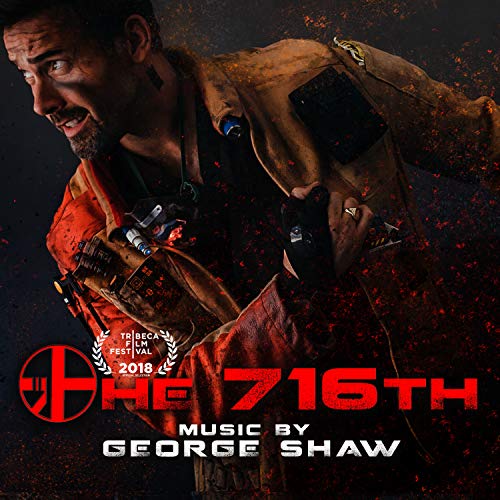 Q: What is your technique when you’re composing to take your digital orchestra tools and create a virtual symphonic sound using them?
Q: What is your technique when you’re composing to take your digital orchestra tools and create a virtual symphonic sound using them?
George Shaw: A big part of it is using realistic sounding samples and good reverb, but the rest is understanding orchestration and knowing how it should sound in real life. That lets you figure out the best way to approximate the actual sound; I spend a lot of time programming the samples to mimic the sound I imagine in my head. This has taken me years to get good at, and there’s always room to learn more, but it does help to use whatever live performances to sweeten the sound which lends authenticity to help fool the ears into believing it sounds real.
Q: Where can THE 716th be seen – will it have some kind of distribution?
George Shaw: The 716th is currently available on Amazon Prime, and if it gets enough views, we’re hoping to turn it into a much bigger project, so please go check it out!
Q: How was “American postmodern metafictional murder-mystery reality web series” (as Wikipedia describes it) ESCAPE THE NIGHT conceived and how did you become involved in scoring it?
George Shaw: ESCAPE THE NIGHT was created by YouTube star Joey Graceffa and showrunner Adam Lawson. I had previously worked with Adam on a Geek & Sundry YouTube show called TABLETOP, and he brought me onto ESCAPE THE NIGHT. Each season I get a list with descriptions of themes I need to compose for the villain of the episode. This happens as the show is being shot, so it’s long before I get to see what anything looks like, which means I’m composing themes entirely off my own imagination and the description of the character. The editors of the show will cut in my themes where appropriate (along with a library of other music that gets used to fill in all the other areas that need music). I usually have the themes written by the time I start scoring to picture, and I get to score the opening cinematic scene in most episodes, which is the part I enjoy the most.

Q: There is a very interesting thematic structure linking each of the episodes together – a consistent motif but treated very differently in the first tracks of each season’s soundtrack. Would you describe how you linked the concept, situations, and/or characters through themes or motifs, in very different presentations through each of the three season?
George Shaw: Each season has a different setting and time period, the first season is set in a 1920s mansion dinner party, the second in a Victorian era masquerade party, and the third in a 1970s carnival. What links them all together is the overall dark, supernatural fantasy of murder and mystery, but I get to play with the sound of each season based on the various settings. I especially had fun in the 3rd season where I got to experiment with suspense combined with disco elements and dark, twisted carnival waltzes.
Trailer for ESCAPE THE NIGHT Season 1
Q: Is this also produced via a completely digital orchestra, or…?
George Shaw: ESCAPE THE NIGHT is pretty much all digital orchestra, with some occasional clarinet playing by myself since I always have to use some live recording. Though the general dark sound of the show lends itself to using very little woodwinds, so I usually lean towards strings, percussion, and brass with additional keyboard and synth elements added in here and there.
In the 3rd season we were lucky to record female vocals in a few places, as it turns out one of the producers of the show, Catherine Keithley, is quite an amazing singer! Trying to find places where I could use vocals wasn’t easy, but I’m glad I was able to come up with a few.
Q: What’s been most challenging about scoring ESCAPE THE NIGHT?
George Shaw: While I love writing a good tune, trying to write a new theme for just about every episode isn’t so easy, as I find myself agonizing over most every theme I write. I think I’ve written nearly 30 themes across the three seasons – though I’m glad the filmmakers are happy enough with the themes to want them to be created for each season!
Trailer for ESCAPE THE NIGHT Season 3
Q: Congratulations on being named a finalist for Universal’s Film Music Composer Initiative. What does this mean for you and what opportunities will it provide?
George Shaw: Thank you, I’m excited to find out what will come out of it, but I did have the opportunity to collaborate with filmmakers at DreamWorks on a short film and pitch music that was also heard by the film music executives at Universal Studios. While I wasn’t ultimately chosen to go on and score the project with a live orchestra (Hollywood is still quite competitive), it was such a thrill and an honor to be allowed past the gates and onto the DreamWorks campus to meet with filmmakers. I even ran into James Hong (voice of Mr. Ping from Kung Fu Panda) at one point, and I may have taken advantage of the frozen yogurt machine a few times.
Universal is also giving us mentorship opportunities as well as introducing us to executives across the NBC/Universal lot. It is very exciting for a major film studio to highlight diversity in film composing, as this is the first program of its kind. Having been known for my work in Asian American circles for some time (I am of Chinese, Taiwanese, and Japanese descent), I’m ready to spread my wings and write music for more mainstream projects and hopefully work more with live orchestras. I’ve also become a founding member of the Composer’s Diversity Collective, which was started by Michael Abels [composer of GET OUT], and am excited for all the new voices in film composing that Hollywood will soon be discovering.
Q: What do you have coming up that you can mention?
George Shaw: I’ve been delving more into composing musicals and working on animated projects, so I’m excited for some of that work to become available in the next year. I’m also producing a 2nd episode of my STAR WARS MUSICAL, and we are finally getting deep into post production, so that should be out in 2019.
Q: Thanks very much!
See our earlier story: George Shaw scores STAR WARS fan-film, “WAY TO THE REBELLION,” here.
